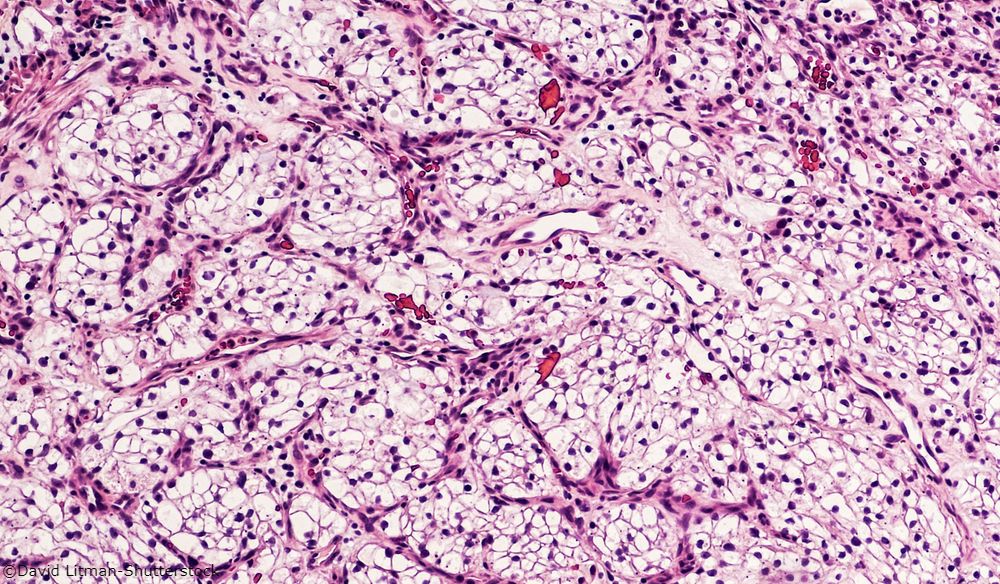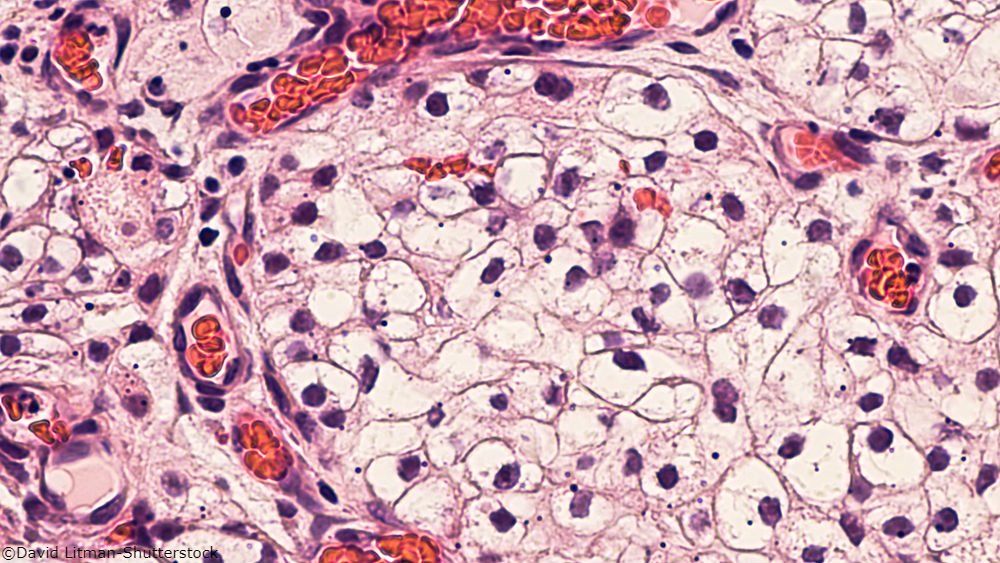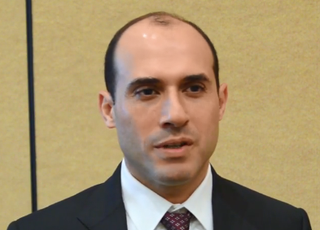
Genitourinary Cancers
Latest News
Latest Videos
More News

A phase II study found that the FGFR inhibitor erdafitinib yields a good response rate and was well tolerated in patients with urothelial carcinoma and FGFR alterations.

The combination of the PARP inhibitor olaparib and abiraterone offered improved efficacy in patients with metastatic castration-resistant prostate cancer, but at what cost?

Current smokers at the time of primary treatment for localized prostate cancer have a higher risk of negative outcomes, including recurrence, metastasis, and mortality.

Salvage Cryoablation May Delay the Need for Hormone Therapy in Recurrent Prostate Cancer
Salvage cryoablation following local recurrence post radiation may be a safe way to avoid or delay initiation of hormone deprivation therapy.

Initiation of ADT in a Man With Locally Advanced Prostate Cancer and Multiple Cardiovascular Risk Factors
A 65-year-old man presented with locally advanced, high-risk prostate cancer. His medical history was remarkable for type 2 diabetes mellitus, and he was an active smoker with a 27 pack-year history.

POINT: Chemotherapy vs Abiraterone for the Initial Management of Metastatic Prostate Cancer
Chemotherapy is the best option for the initial management of metastatic prostate cancer.

COUNTERPOINT: Chemotherapy vs Abiraterone for the Initial Management of Metastatic Prostate Cancer
Abiraterone has become the first-choice treatment for men with metastatic prostate cancer.

Single Gemcitabine Instillation Can Reduce Urothelial Cancer Recurrence
An intravesical instillation of gemcitabine following TURBT reduced the risk of recurrence in patients with suspected low-grade non–muscle-invasive urothelial cancer.

Dose-Dense Chemo Shows Promise as Neoadjuvant Therapy in Bladder Cancer
A neoadjuvant dose-dense regimen was active and well tolerated in patients with muscle-invasive bladder cancer, allowing downstaging of most patients before radical cystectomy.

The US Preventive Services Task Force issued a final recommendation on prostate cancer screening, including that men aged 55 to 69 years should make an individual decision on whether or not to be screened.

Patient and Tumor Features Predicted RCC Outcomes Post Nephrectomy
Routinely available patient and tumor features accurately predicted the risk progression and death from RCC post nephrectomy, a Mayo Clinic team found.

Online Tool for Reporting Prostate Cancer Comorbidities Shows Promise
An at-home online survey was found to be a reasonably accurate way to collect patient comorbidities prior to a physician visit in patients with prostate cancer.

Synthetic Lethality of PARP Inhibitors in Prostate Cancer
In this podcast, Dr. Emmanuel Antonarakis discusses his novel clinical trial evaluating PARP inhibitors in high-risk and biochemically recurrent prostate cancer.

A study found some mutations that are already targeted by approved or investigational drugs for prostate cancer, along with dozens of targets that should be considered as candidates for future trials.

In a pivotal trial, combination of nivolumab and ipilimumab yielded improvement in OS and ORR of poor-risk RCC patients.

No Improved Outcomes in Prostate Cancer With ADT Plus Mitoxantrone/Prednisone
Combining mitoxantrone and prednisone with adjuvant androgen deprivation therapy failed to improve overall survival over ADT alone in patients with high-risk prostate cancer.

Antibiotics Reduced Efficacy of Checkpoint Inhibitors in RCC, NSCLC
Antibiotics administered within 30 days of starting immunotherapy reduced both PFS and OS for patients with advanced RCC and NSCLC.

Dr. Elizabeth Plimack discusses her 2018 AACR meeting presentation on recent advances in systemic therapy for bladder cancer.

Pembrolizumab Offers Better QOL vs Chemo in Advanced Urothelial Cancer
Pembrolizumab offered stable or improved measures of global health status and quality of life compared with chemotherapy in patients with previously treated advanced urothelial cancer.

First-line combination therapy with the PD-L1 inhibitor avelumab and the VEGFR TKI axitinib yielded antitumor activity in previously untreated RCC.

Enfortumab Vedotin Granted Breakthrough Designation for Metastatic Bladder Cancer
The FDA has granted a Breakthrough Therapy designation to the antibody-drug conjugate enfortumab vedotin for patients with locally advanced or metastatic urothelial cancer.

No Benefit in Outcomes With Higher Resource Use in Metastatic Prostate Cancer
Increases in resource use were not associated with improved survival or quality of care for patients with metastatic prostate cancer, but were associated with higher healthcare costs.

Proton RT for Prostate Cancer Has Reduced Toxicity, Higher Cost vs Other RT Options
Proton radiation therapy offers some reduced toxicity over IMRT in patients under the age of 65 with prostate cancer, but its cost is nearly double.

Enzalutamide Granted Priority Review for Expanded Use in Prostate Cancer
The FDA is granting Priority Review for the expanded use of enzalutamide in nonmetastatic castration-resistant prostate cancer.

Differential Methylation in CITED4: Bladder Cancer Risk Biomarker?
Differential methylation in CITED4, as measured in blood, appears to be a promising marker of bladder cancer susceptibility in women.













































